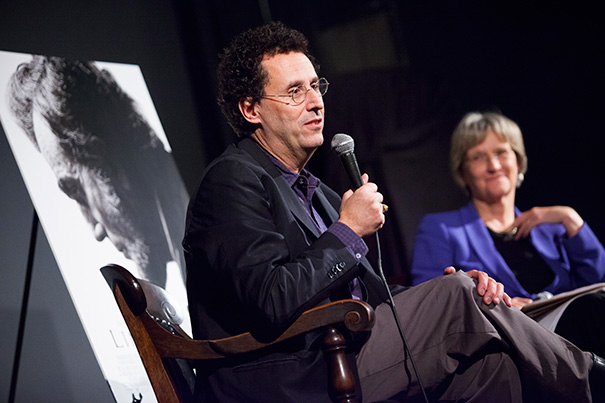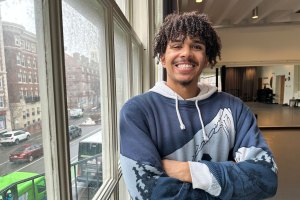Arts & Culture
-
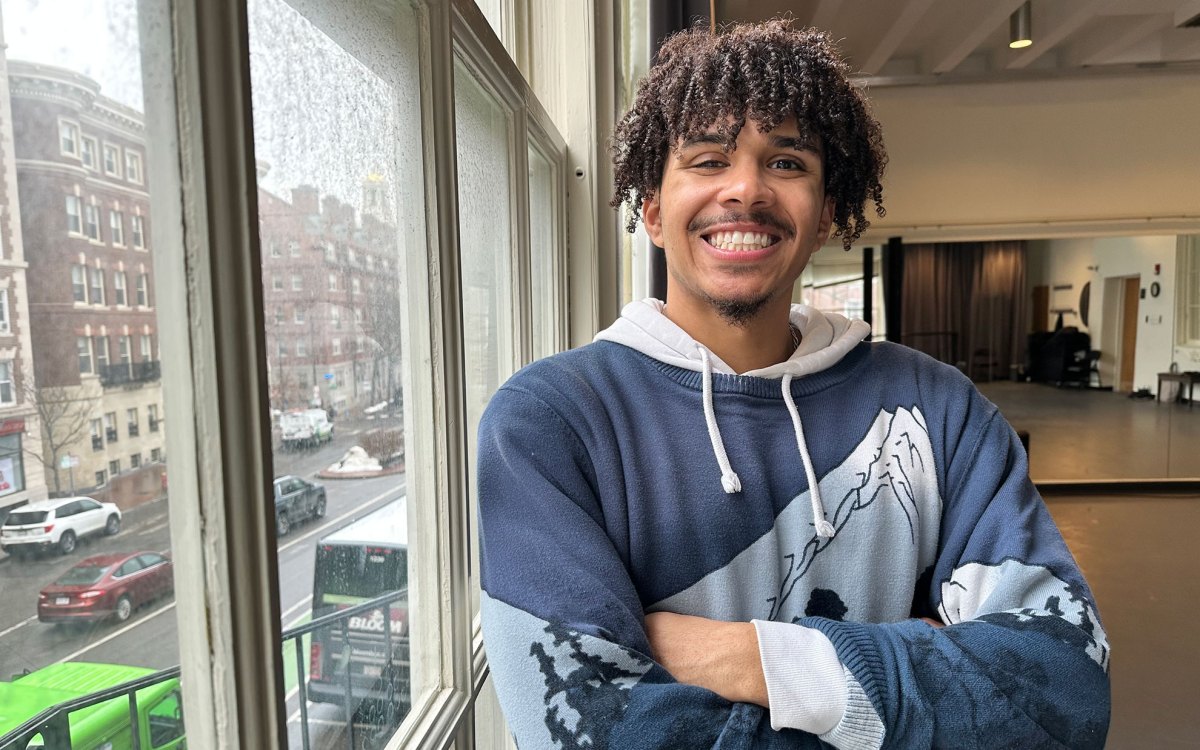
Retelling Frederick Douglass’ story, with a soundtrack
Senior composes musical about abolitionist’s early life
-
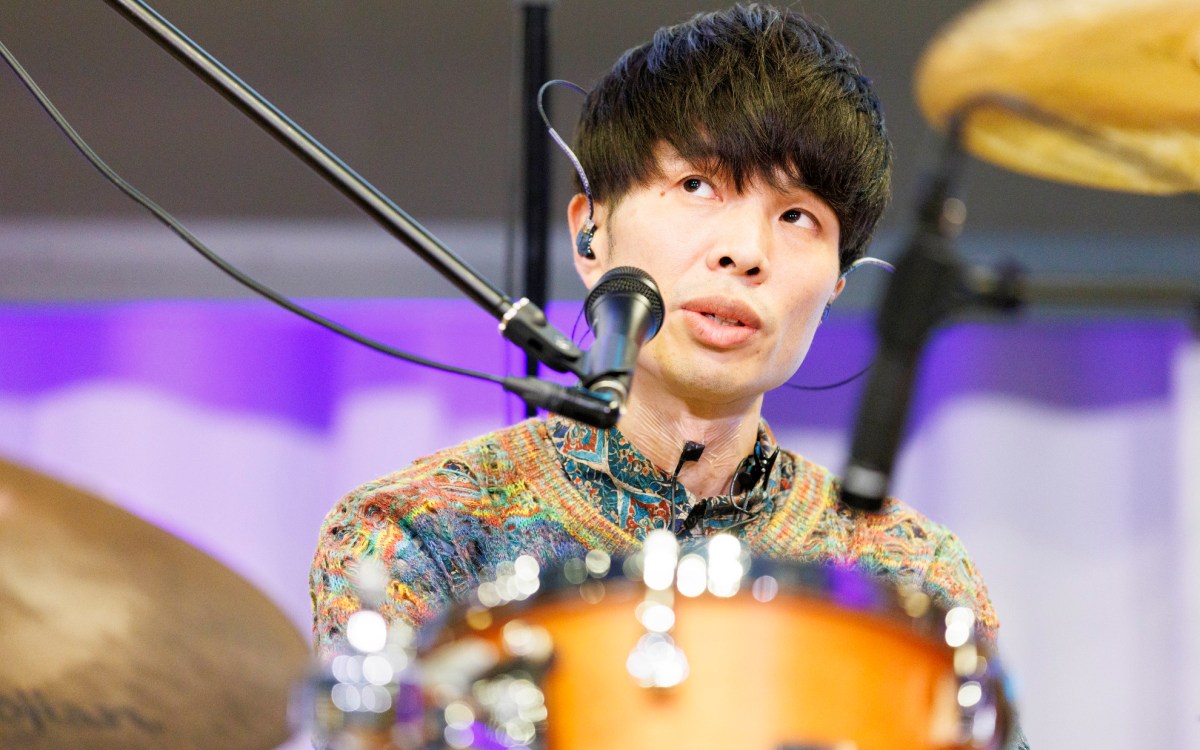
‘The sound stopped suddenly’
After rare condition robbed drummer of ability to play music, science led him back
-

Moved by what’s missing in Homer’s ‘Harrow’
Curator launches series steeped in U.S. history
-

Tina Fey’s keys to a good joke: Snark, confidence, surprise
Comedian keeps Harvard crowd laughing with longtime co-writer Robert Carlock ’95
-

How Bad Bunny rocketed to global stardom
Music scholar charts ‘remarkable’ rise that transcended language barriers and cultural stigma
-

‘A whole new experience of Kubrick’
As HFA screens full works, professor dissects why films like ‘The Shining’ and ‘2001’ still provoke audiences today
-
Arresting images
A new exhibit at the Harvard Law School Library explores the portrayal of crime in the American media, a relationship that began in the mid-1800s when a public fascination with true crime emerged.
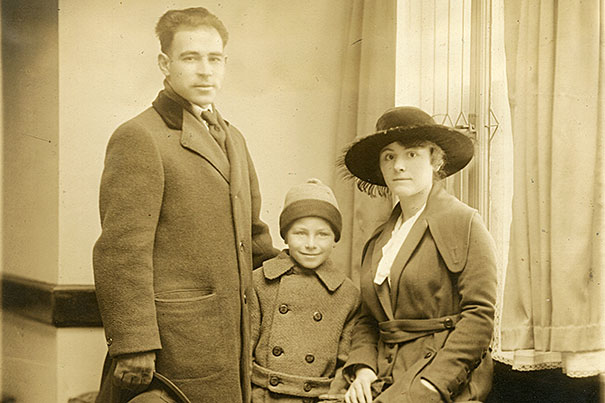
-
James Wood’s lighter side
James Wood, Harvard professor and New Yorker critic, talked to the Gazette about his new book, “The Fun Stuff,” losing himself in music, and a looser approach to fiction.
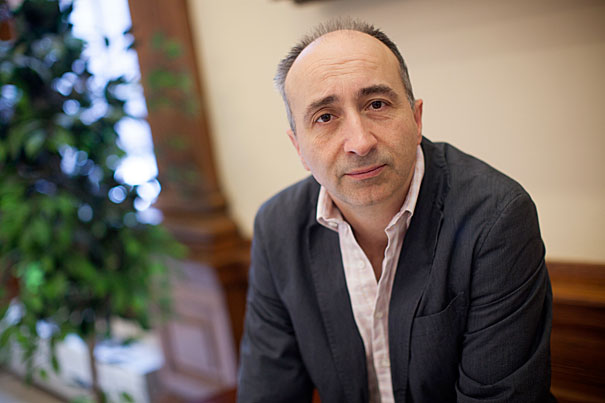
-
Harvard filmmakers in Berlin
Filmmakers with Harvard ties are showing, speaking, and mingling at the Berlinale, the Berlin International Film Festival.

-
Saga of a Civil War surgeon
A lecture series on medicine in the Civil War continues at Harvard Medical School with a look at Zabdiel Boylston Adams, a descendant of an iconic American founding family who served heroically as both a doctor and an infantry officer.
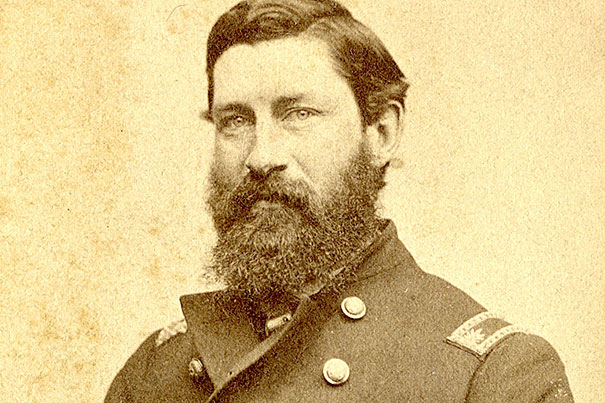
-
Sound that travels
Grad students discussed issues of appropriation and collaboration during “Africa Remix: Producing and Presenting African Musics Abroad” at the Barker Center.
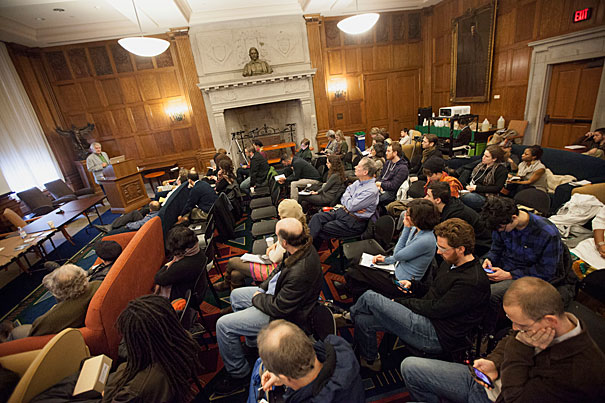
-
A remembrance of things Proust
Ahead at Harvard is a semester of celebrating Marcel Proust, whose landmark “Swann’s Way” was published in 1913.
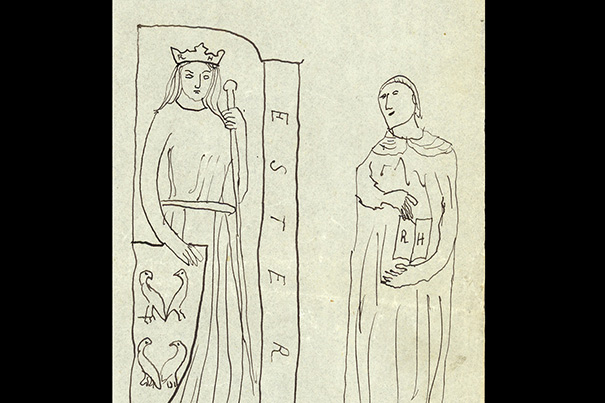
-
Violence, meet nonviolence
Starting in 2014 at the Mahindra Humanities Center, a three-year, interdisciplinary seminar and lecture series, funded by the Andrew W. Mellon Foundation, will investigate the interdependence of violence and nonviolence.
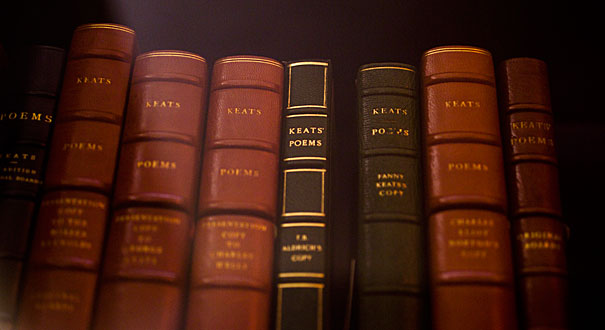
-
A different take on Tut
French Egyptologist Marc Gabolde offered a different interpretation of the DNA evidence on King Tut’s lineage in a talk at Harvard’s Science Center.
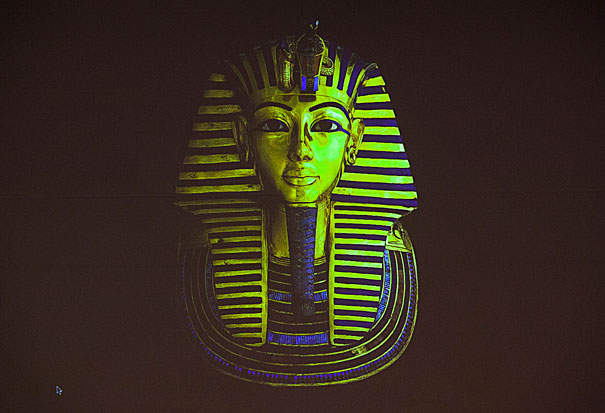
-
Matt Damon to receive Arts Medal
Actor, writer, producer, and humanitarian Matt Damon is the recipient of the 2013 Harvard Arts Medal, which will be awarded by Harvard President Drew Faust at a ceremony on April 25 at 4 p.m. at Sanders Theatre.
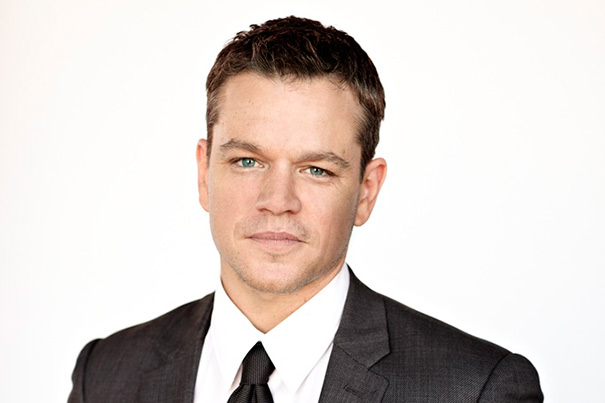
-
The Emancipation Proclamation now
Marking the 150th anniversary of the Emancipation Proclamation, the Harvard Gazette asked scholars from across the University to reflect on the historic order’s ongoing impact today.
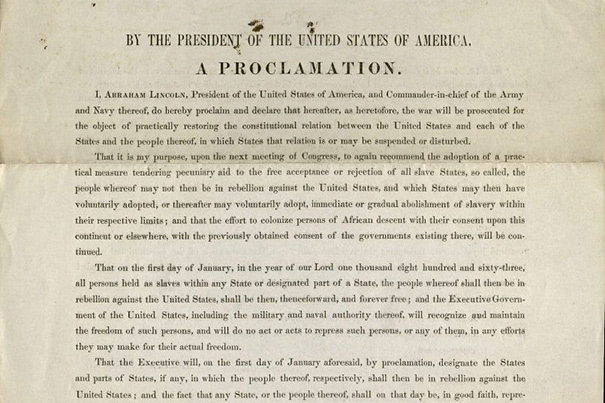
-
The Proclamation at Houghton
Among the vast holdings at Houghton Library is a signed copy of the Emancipation Proclamation once owned by Charles Sumner, Abraham Lincoln’s confidante and Secretary of State during the Civil…
-
Lunch with Tiffany
British director and Tony Award winner John Tiffany is reworking the classic Tennessee Williams play “The Glass Menagerie” for the American Repertory Theater.
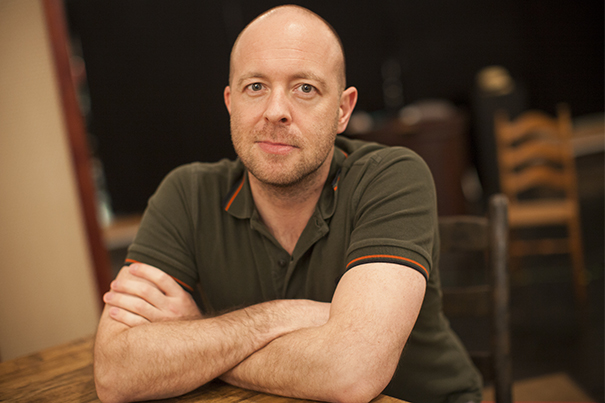
-
26 immortal portals
A January Arts Intensive in journalism explored the facts, fun, and stories behind Harvard Yard’s 26 gates, including architectural features that are little noticed by those who pass through them.
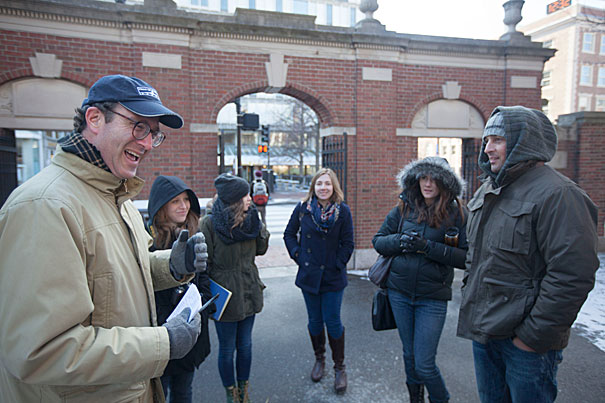
-
Direct from Broadway
The Broadway star Christine Ebersole shared her advice and some tricks of the trade with three undergraduates during a master class sponsored by Harvard’s Office for the Arts.
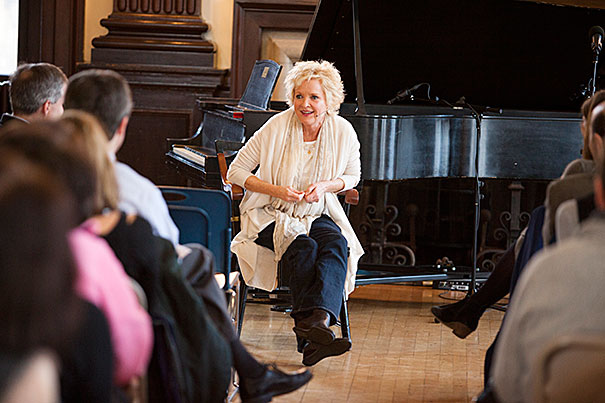
-
Pearls of Persian art
A generous donation by the late Norma Jean Calderwood — philanthropist, autodidact, and keen-eyed collector — brought a millennium’s worth of Islamic art to Harvard, some of which is now on display for the first time at the Arthur M. Sackler Museum.
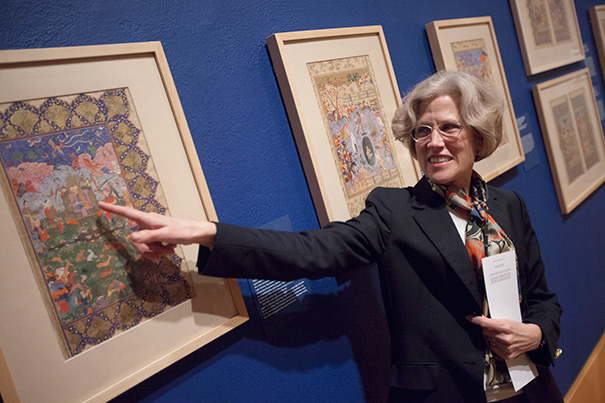
-
On the nature of difference
Harvard College Dean Evelynn M. Hammonds discussed her book “The Nature of Difference: Sciences of Race in the United States from Jefferson to Genomics” before 50 students as part of Wintersession activities.
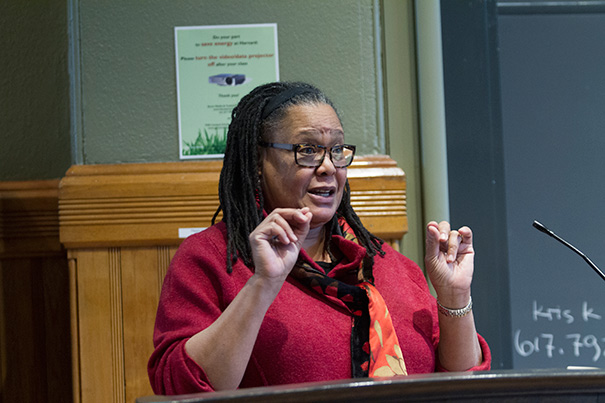
-
Widening the Wheelwright
Every year since 1935, the Harvard Graduate School of Design (GSD) has awarded one of its graduates the Arthur W. Wheelwright Traveling Fellowship, praised by generations of recipients for enriching careers in most cases already under way.
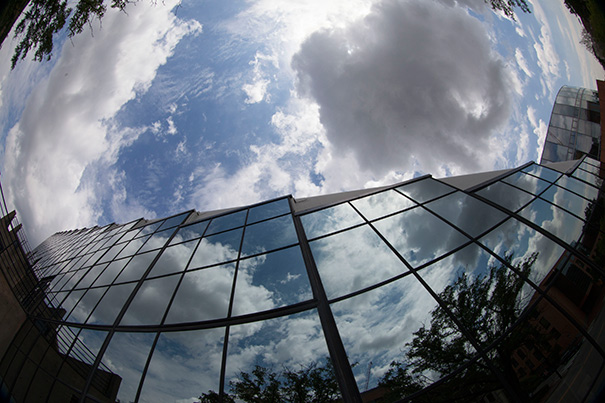
-
A return to the radical
In a discussion at the Radcliffe Institute for Advanced Study, the stage director John Tiffany and Diane Paulus, the artistic director of the American Repertory Theater, said that their new production of Tennessee Williams’ “The Glass Menagerie” will restore some of the work’s unconventionality.
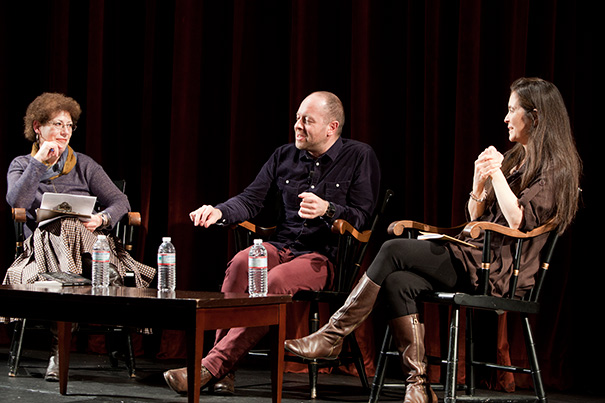
-
‘Pippin’ goes to the circus
Diane Paulus’ newest musical adaptation at the American Repertory Theater, a reworking of the 1970s hit ‘Pippin,’ weaves the element of circus performance into the production. The show continues through Jan.20 at the Loeb Drama Center.
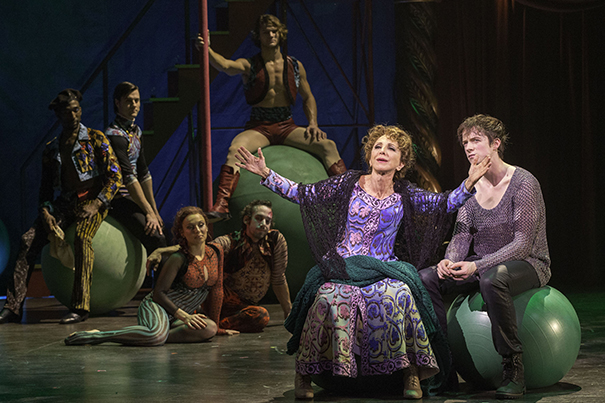
-
Nothing but a breakthrough
The Harvard Film Archive leads off its 2013 screenings with “Nothing But a Man,” a landmark 1964 film by two Harvard graduates.
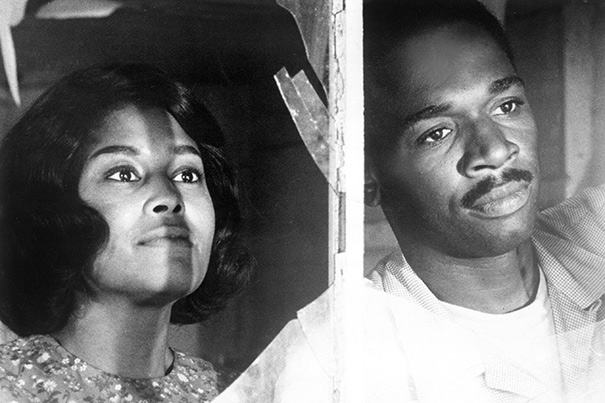
-
The director’s cut
The young director Allegra Libonati stages a new production of the brothers Grimm fairytale “Hansel and Gretel” at the A.R.T. Institute. The show runs through Jan. 6.
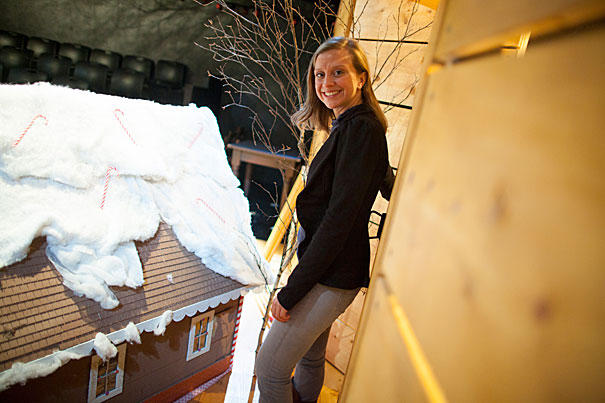
-
He wrote the book of love
A neurologist who teaches at Harvard Medical School ponders love and its complexities in his latest book, “What to Read on Love, Not Sex: Freud, Fiction, and the Articulation of Truth in Modern Psychological Science.”
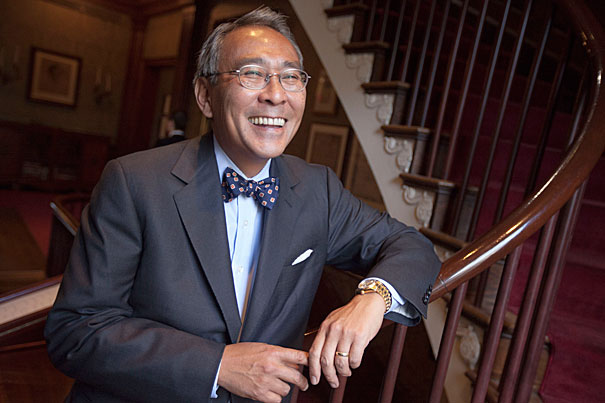
-
Carolling at Memorial Church
Each year in December, Harvard’s Memorial Church presents members of the University community and beyond with the gift of song.
-
A musical gift
Each year, the Memorial Church offers the gift of song to the Harvard and Cambridge communities, with two moving services of carols. The Dec. 17 service is scheduled for 8 p.m.
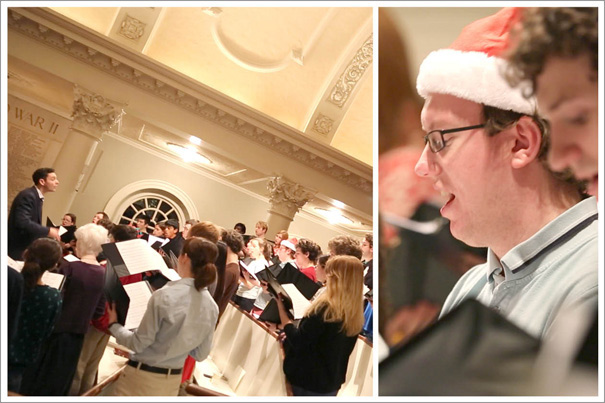
-
A too-short life, examined
D.T. Max, author of a new biography of David Foster Wallace, sat down with professor and critic James Wood to discuss the writer’s legacy and his brief time at Harvard, a catalyst for the breakdown and recovery that inspired much of Wallace’s masterpiece, “Infinite Jest.”
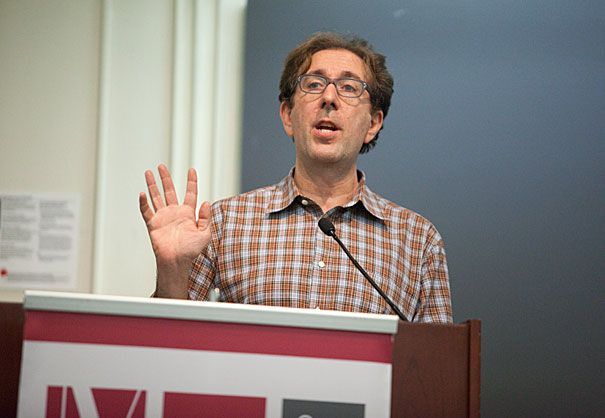
-
The ongoing allure of Tolkien
In a question-and-answer session, Stephen Mitchell, Harvard professor of Scandinavian and folklore, explores the lasting appeal and the inspirations behind author J.R.R. Tolkien’s classic tale “The Hobbit.” Director Peter Jackson’s adaptation of the book for the big screen opens in the United States mid-December.
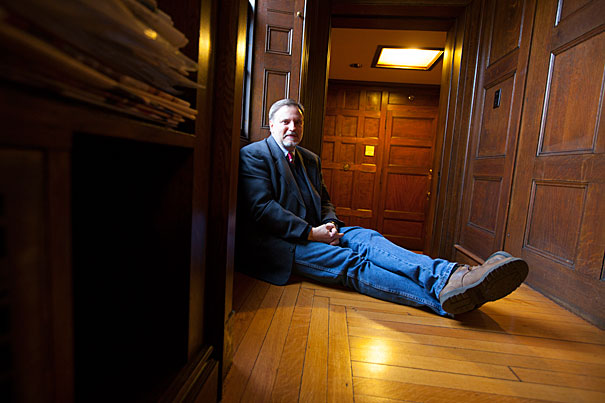
-
Good, but never simple
Delivering Harvard Divinity School’s Ingersoll Lecture at Sanders Theatre, Nobel laureate Toni Morrison discussed concepts of good and evil in her work and that of her contemporaries.
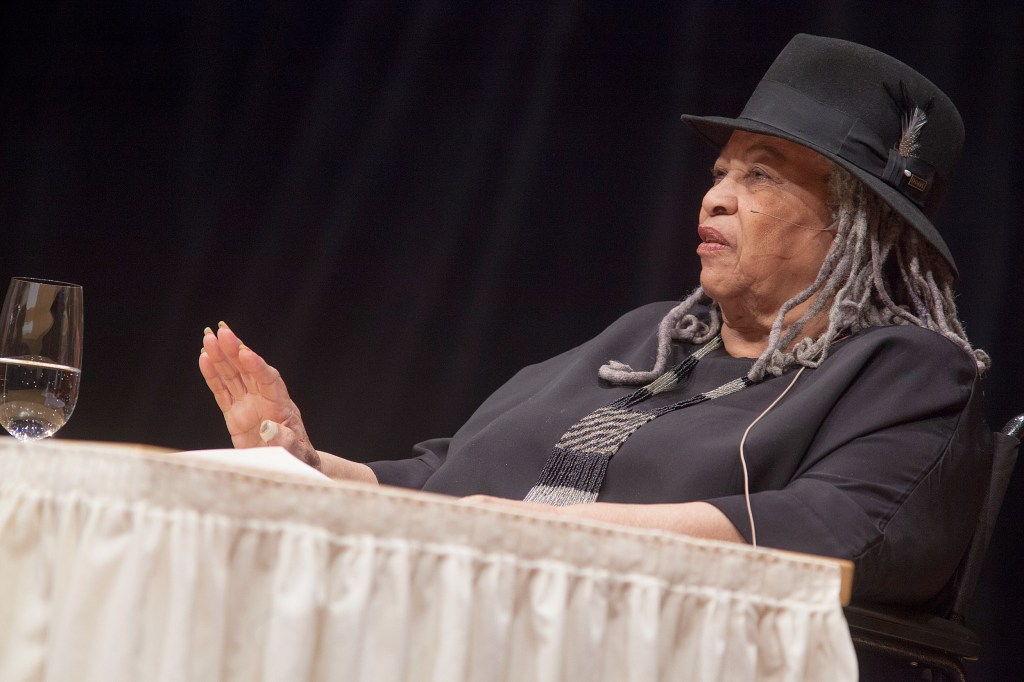
-
Girls who rock out
A film and a discussion at Radcliffe’s Schlesinger Library highlight Girls Rock Camp, which teaches girls and young women during summer sessions to find their inner musicians, shed some inhibitions, and celebrate themselves.
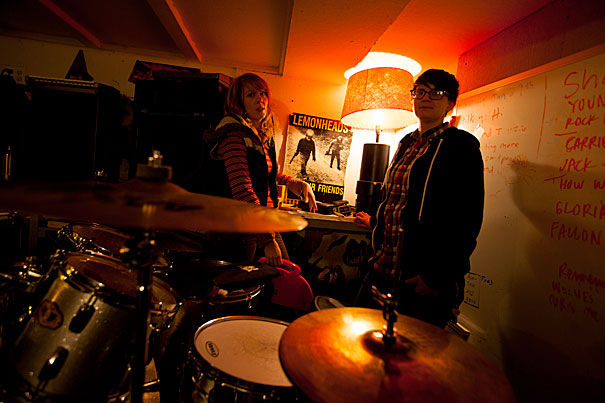
-
An ancient statue, re-created
Harvard’s Semitic Museum is employing a high-tech response to the destruction of 3,300-year-old figures, using 3-D scanning to repair a ceramic lion that was damaged by the Assyrians.
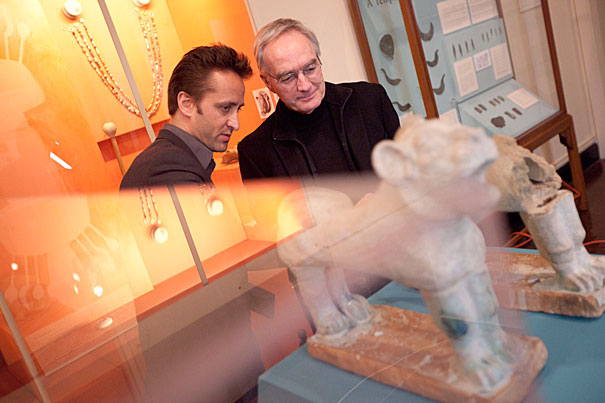
-
Lincoln’s dimensions
Screenwriter and playwright Tony Kushner sat down with President Drew Faust to dissect Abraham Lincoln’s legacy and talk history, politics, and writing after a Harvard-sponsored screening of his new biopic, “Lincoln.”
